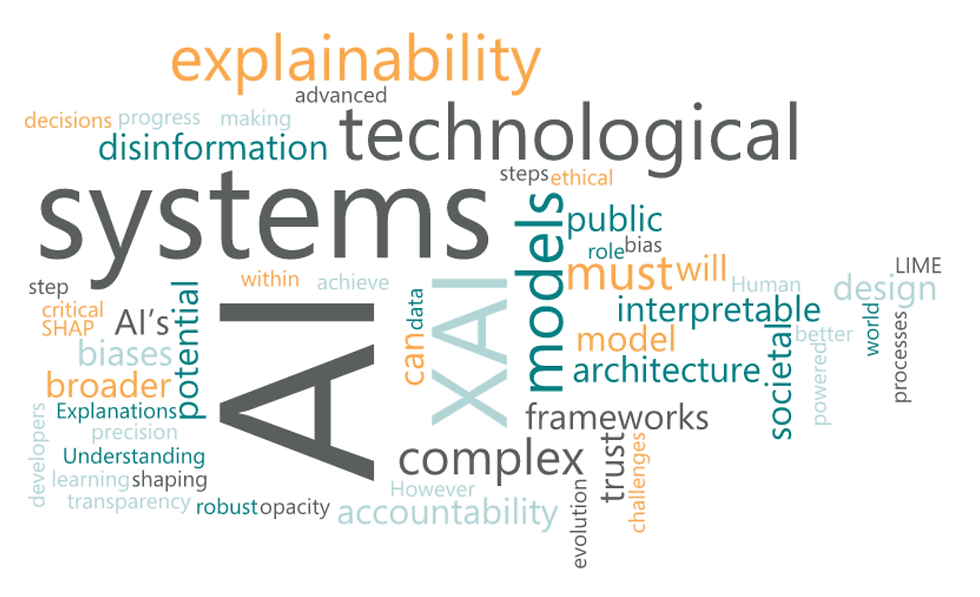AI Systems Mimicking Human Behaviour
- Prokris Group
- Oct 20, 2024
- 3 min read
In my research studies on the rise of AI systems that mimic human behaviour, I have identified some alarming patterns. This raises questions about the ethical, social, and psychological implications of machines that imitate human behaviour without discernment.
The development of AI models capable of engaging in remarkably human-like conversations is indeed fascinating but also unsettling. On one hand, these advancements promise to make technology more accessible and interactive, potentially enhancing education and user engagement. On the other hand, they blur the line between human and machine, prompting us to question the authenticity of our daily and routine interactions.
A critical issue I have been contemplating is the potential erosion of trust in digital communications. If AI systems can simulate human behaviour to the point of being indistinguishable, how do we ensure transparency in our professional and personal interactions? Who holds responsibility when an AI expresses “artificial” emotions and opinions that influence deeply human decisions? These questions emphasise the need for clear guidelines and accountability in the development of AI systems.
There is a certain emotional impact on individuals who may form attachments to artificial assistants. The phenomenon where humans believe they have formed a personal connection with AI is not new, but as these systems become more advanced and sophisticated, the potential for emotional harm increases manyfold. How can we prepare ourselves to addressing the psychological effects on those individuals who may be misled into believing they are interacting with another human?
The replication of human biases and flaws embedded in AI systems adds more complexity and concerns. AI systems are now capable of imitating behaviour without understanding context or morality. If an AI blindly mirrors human actions based on incomplete and inherently biased training, it will most certainly perpetuate harmful stereotypes and misinformation. How can we ensure that these systems adopt ethical standards in the process of mimicking human behaviour? Who is accountable when an AI's actions cause harm due to the biased and corrupted training practices it has been trained on?
In my latest book on AI ethics, I have examined the rapid evolution of artificial intelligence (AI), which has highlighted the urgent need for robust governance frameworks. Given the critical nature of this issue, I was encouraged to read and analyse the United Nations' Governing AI for Humanity report. In my view, this document lays the foundation for addressing the ethical, social, and economic risks brought by AI, which have been areas of global concern. I welcome it as a significant step forward in addressing the governance challenges AI presents, particularly as the growing power imbalance between global tech corporations and nation-states intensifies.
The role of developers and policymakers is crucial in addressing these concerns. There is an urgent need for governance frameworks that address the capabilities and limitations of anthropomorphic AI systems. What safeguards are vital and necessary to prevent misuse while maintaining innovation and transparency? How do we regulate the practices to which machines can emulate human interactions?
We have only just started to comprehend the extent to which societies are impacted by widespread human-like AI especially during the evolution of generative AI systems in recent years. AI systems have become integrated into customer service, education, and companionship roles. We must consider how this gradual and unchecked integration affects human relationships and societal norms. Will over-reliance on AI for social interactions diminish our capacity for empathy? How do we balance the benefits of the latest innovation and accessible technology while maintaining our crucial social, economic and cultural essence?
Collective action is necessary and urgent. Governments, technologists, and civil society must collaborate in developing ethical guidelines and regulatory measures as recommended in the recent release of the UN report on AI Governance. This necessitates technical solutions and a public discourse on the fundamental human values we cherish dearly.
The decisions we make now will shape the role of AI in our lives for many years to come. If we allow machines to imitate us without restraint, and without setting boundaries that protect human dignity and authenticity, we pose risks unimaginable to humanity. It is our responsibility to ensure that AI serves as a tool for enhancement rather than a source of unintended and unpredictable consequences.
The journey toward responsible AI integration has only just started. We must engage in open dialogue and proactive policymaking and steer the development of AI in a direction that aligns with our ethical principles and societal requirements. We must take the necessary steps to govern AI responsibly. Ignore that and we risk losing control over technology. Humans need to determine the trajectory of our relationship with technology and with each other.






Kommentare